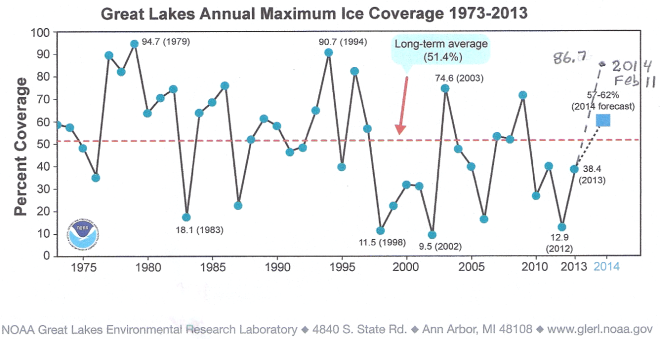The "vortex" has chilled the Great Lakes.
Keep shov'ling those "Climate Change" flakes!
For new records are set
Warmers losing their bet.
It's cold on our yearly "Spring Breaks".
The values for ice coverage on the Great Lakes as of Mar 4:
Lake Superior 95.2889%
Lake Michigan 92.4497%
Lake Huron 95.9375%
Lake Erie 95.8338%
Lake Ontario 31.9431%, the weighted average 91,0% (data from http://coastwatch.glerl.noaa.gov/statistic/ice/ice_stat_2013_2014.txt )
The forecast from NOAA was for 58 to 62% maximum ice-cover for 2014. We are now at the greatest ice cover since 1979, the second highest value since accurate records are kept with a couple of cold nights left to go. The average for the last 40 years is an ice maximum of 51.4%. See fig:
There is still an arctic blast ongoing. Detroit had a new snow record for January. It will take a long time to melt all this ice and snow come spring. It takes 80 calories to melt one gram of ice, but only twenty to heat it from zero to 20 degrees C (68 F) . This may affect the length of the growing season.
Is is climate change, or only unusual weather?







